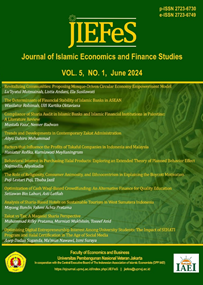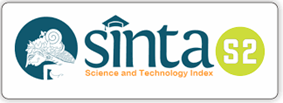Zakat vs Tax: A Maqasid Sharia Perspective
DOI:
https://doi.org/10.47700/jiefes.v5i1.7846Keywords:
Maqasid Sharia, Economy, Tax, ZakatAbstract
This study explores the comparison between zakat and tax within the framework of maqasid sharia perspective. Specifically, this study compares zakat and tax in terms of how effectively each system fulfills the objectives (maqasid ) of sharia such as hifz al-mal (protection of wealth), islah (rectification), hifz al-nafs (salvation of the soul), and 'adl (social justice). It aims to evaluate the extent of the impact of zakat and tax implementation on wealth distribution, poverty elimination, and the establishment of a just economic structure. Through a comprehensive analytical approach, this study evaluates the contribution of each instrument towards the realization of these objectives. A qualitative approach and a thematic literature review is adopted to explore evidences related to zakat vs tax from a maqasid sharia perspective. The result shows that zakat proves to be an effective tool in supporting equitable wealth distribution and social safety, while taxes provide consistent funding for public services. However, challenges such as compliance, transparency and fairness remain a critical focus. This research provides important insights into how the implementation of zakat and tax can be optimized to achieve the desired balance within the maqasid sharia framework.
References
Al-Ayubi, S., & Halawatuddu’a, S. (2021). MAQASID AL-SHARIA IN ISLAMIC FINANCE. Jurnal Al-Dustur, 4(2), 197–215. https://doi.org/10.30863/jad.v4i2.1823
Al-Ayyubi, S., Herindar, E., & Perdana, M. N. (2023). MAQASID SHARIA IN TABARRU’ CONTRACT LAWS. Jurnal Al-Dustur, 6(1), 28–49. https://doi.org/10.30863/aldustur.v6i1.4194
Almatar, F. (2015). ZAKAT VS. TAXATION: THE ISSUE OF SOCIAL JUSTICE AND REDISTRIBUTION OF WEALTH. European Journal of Business, Economics and Accountancy, 3(3). www.idpublications.org
Al-Salih, A. N. (2020). The Role of Zakat in Establishing Social Welfare and Economic Sustainability: The Case of Saudi Arabia. International Journal of Financial Research, 11(6), 196. https://doi.org/10.5430/ijfr.v11n6p196
al-Zuhaili, W. (2013). Tafsir Al-Munir juz 3&4. www.tedisobandi.blogspot.com
Aneeq, M., Roslan, A., & Akbar, M. A. (2020). 4 TH INTERNATIONAL CONFERENCE OF ZAKAT PROCEEDINGS A Review on the Contribution of Zakat and Taxation towards Economic Development Postulated by Two Contemporary Research Scholars.
Ascarya, Posumah, B. T., Antonio, M. S., Mukhlisin, M., Yasid, M., Mulyana, R., & Tamanni, L. (2020). TUJUH PAKET KEBIJAKAN EKONOMI DAN KEUANGAN SYARIAH MENGATASI DAMPAK KRISIS COVID-19.
Chapra, M. U. (2008). The Islamic Vision of Development in the Light of Maqāsid Al-Sharī’ah.
Djatmiko, H. (2019). Re-formulation zakat system as tax reduction in Indonesia. Indonesian Journal of Islam and Muslim Societies, 9(1), 1–29. https://doi.org/10.18326/ijims.v9i1
Halimy Kamaluddin, S., Ridho, M., & Imam Bonjol Padang, U. (2020). Zakat and Taxes in Islamic Overview: in terms of Benefit. In Kawanua International Journal of Multicultural Studies (Vol. 1, Issue 2).
Ismawati, Muchran, M., Khaliq, A., & Wahyuni. (2022). Penerapan Zakat Sebagai Pengurang Penghasilan Kena Pajak Orang Pribadi . Al-Buhuts, 18(2442-823X).
Itang, & Musrifa, R. (2018). PAJAK DAN ZAKAT DALAM KAJIAN ULAMA DAN PERUNDANG-UNDANGAN. 19.
Jamal, R. (2010). MAQASHID AL-SYARI’AH DAN RELEVANSINYA DALAM. Jurnal Ilmiah Al-Syir’ah, 8(1).
Kailani, N., & Slama, M. (2020). Accelerating Islamic charities in Indonesia: zakat, sedekah and the immediacy of social media. South East Asia Research, 28(1), 70–86. https://doi.org/10.1080/0967828X.2019.1691939
Lestari, D. A., & Fajar. (2023). Penerapan Kebijakan Zakat Sebagai Unsur Pengurang Pajak Penghasilan di BAZNAS Kabupaten Jombang. JOLSIC. https://dx.doi.org/10.2096 1/jolsic.v11i2.78121
Mukhlisin, M., & Fadzly, M. (2020). Multiple logics within the international Islamic financial architecture: implications for Islamic financial reporting standards. Accounting Research Journal, 33(6), 709–727. https://doi.org/10.1108/ARJ-03-2020-0059
Pahala, I. (2016). Zakat is More Significant Than Tax. Review of Integrative Business and Economics Research, 5(2), 286. http://buscompress.com/journal-home.html
Putra, P. A., Marliyah, & Siregar, P. A. (2023). Zakat dan Pajak dalam Perspektif Syariah. 20. https://doi.org/10.46781/al-mutharahah
Salim Al-Hadhrami, S., Khamis Al-Hattali, M., & Ries Ahmed Karabük Üniversitesi, E. (2021). ROLE OF ZAKAT IN POVERTY ALLEVIATION: A CASE STUDY IN NIZWA CITY, SULTANATE OF OMAN.
Shams, A., Akhter, Z., & Bukhair, N. B. (2020). E-6 Islamic Concept of Zakat and Tax: Similarities and differences. Al-Aijaz Research Journal of Islamic Studies & Humanities, 4(2), 50–56. https://doi.org/10.53575/e6.v4.02(20).50-56
Sihombing, S., & Sibagariang, S. A. (2020). PERPAJAKAN (Teori dan Aplikasi). www.penerbitwidina.com
Soediro, A., & Meutia, I. (2018). Maqasid Syariah as a Performance Framework for Islamic Financial Institutions. Jurnal Akuntansi Multiparadigma, 9(1). https://doi.org/10.18202/jamal.2018.04.9005
Wijayanti, P., Amilahaq, F., Muthaher, O., Baharuddin, N. S., & Sallem, N. R. M. (2022). Modelling zakat as tax deduction: A comparison study in Indonesia and Malaysia. Journal of Islamic Accounting and Finance Research, 4(1), 25–50. https://doi.org/10.21580/jiafr.2022.4.1.10888
Downloads
Published
Issue
Section
License
Copyright (c) 2024 Muhammad Rifky Pratama, Murniati Mukhlisin, Toseef Azid

This work is licensed under a Creative Commons Attribution 4.0 International License.
Authors who publish with this journal agree to the following terms:
- Authors retain copyright and grant the journal right of first publication with the work simultaneously licensed under a Creative Commons Attribution 4.0 International License that allows others to share the work with an acknowledgment of the work's authorship and initial publication in this journal.
- Authors can enter into separate, additional contractual arrangements for the non-exclusive distribution of the journal's published version of the work (e.g., post it to an institutional repository or publish it in a book), with an acknowledgment of its initial publication in this journal.
- Authors are permitted and encouraged to post their work online (e.g., in institutional repositories or on their website) before and during the submission process, as it can lead to productive exchanges, as well as earlier and greater citation of published work.

This work is licensed under a Creative Commons Attribution 4.0 International License.











